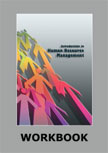The State Bank of India VRS
|
|
ICMR HOME | Case Studies Collection
Case Details:
Case Code : HROB007
Case Length : 07 Pages
Period : 2001
Organization : State Bank of India
Pub Date : 2001
Teaching Note : Available
Countries : India
Industry : Banking and Finance
To download The State Bank of India VRS case study
(Case Code: HROB007) click on the button below, and select the case from the list of available cases:

Price:
For delivery in electronic format: Rs. 200;
For delivery through courier (within India): Rs. 200 + Shipping & Handling Charges extra
» Human Resource and Organization Behavior Case Studies
» HRM Short Case Studies
» View Detailed Pricing Info
» How To Order This Case
» Business Case Studies
» Area Specific Case Studies
» Industry Wise Case Studies
» Company Wise Case Studies

Please note:
This case study was compiled from published sources, and is intended to be used as a basis for class discussion. It is not intended to illustrate either effective or ineffective handling of a management situation. Nor is it a primary information source.
Chat with us

Please leave your feedback

|
|




<< Previous
"They are propagating the VRS in such a manner that the
employees are being compelled to opt for the scheme."
- V.K.Gupta, SBI employee's union leader in December 2000.
VRS Troubles
|
In February 2001, India's largest public sector bank (PSB), the State Bank of
India (SBI) faced severe opposition from its employees over a Voluntary
Retirement Scheme (VRS). The VRS, which was approved by SBI board in December
2000, was in response to Federation of Indian Chambers of Commerce and
Industry's (FICCI)1 report on the banking industry. The report stated that the
Indian banking industry was overstaffed by 35%. In order to trim the workforce
and reduce staff cost, the Government announced that it would be reducing its
manpower.
|

Following this,
the Indian Banks Association (IBA)2 formulated a VRS package for the PSBs,
which was approved by the Finance ministry.
|
|
Though SBI promoted the VRS as a 'Golden Handshake,' its employee
unions perceived it to be a retrenchment scheme. They said that the VRS was completely unnecessary, and that the real problem, which
plagued the bank were NPAs3.
The unions argued that the VRS might force the closure of rural
branches due to acute manpower shortage. This was expected to affect
SBI's aim to improve economic conditions by providing necessary
financial assistance to rural areas. The unions also alleged that
the VRS decision was taken without proper manpower planning.
In February 2001, the SBI issued a directive altering the eligibility criteria
for VRS for the officers by stating that only those officers who had crossed the
age of 55 would be granted VRS. |
Consequently, applications of around 12,000
officers were rejected. The officers who were denied the chance to opt for the VRS
formed an association - SBIVRS optee Officers' Association to oppose this SBI directive. The association claimed that the management was adopting
discriminatory policies in granting the VRS...
Excerpts >>
|
|










